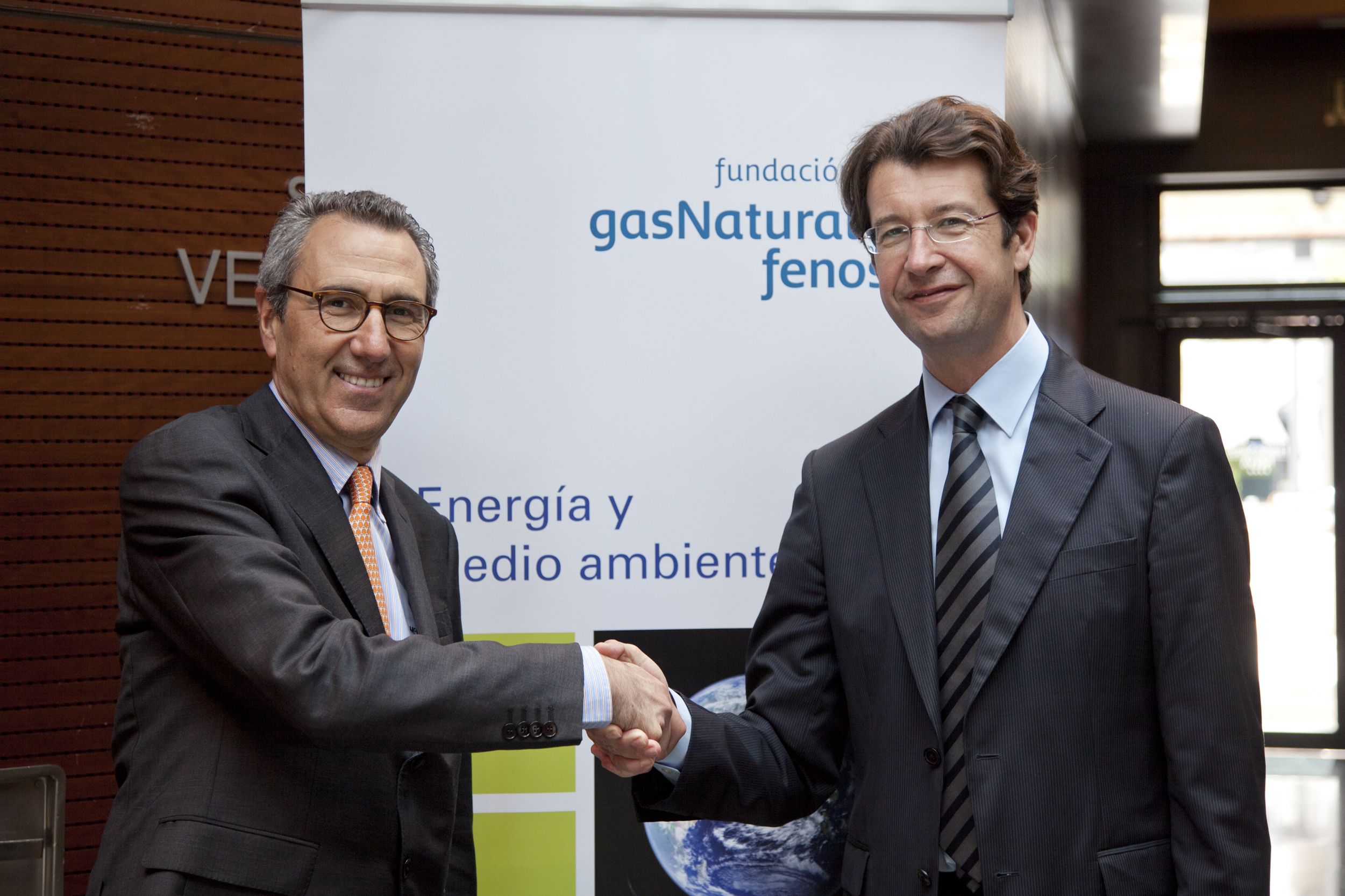The city of Murcia consumes 10% less energy in water supply and sanitation service thanks to improved efficiency
During a seminar organised by the Gas Natural Fenosa Foundation in collaboration with the Regional Government of Murcia, various experts highlighted how the integrated management of energy and water is a key factor in efficiency, saving and sustainability.
The city of Murcia has managed to reduce its energy consumption by 10% in its urban water supply and sanitation service when compared with 2011 thanks to increased energy and water efficiency, and has reduced its CO2 footprint by 89%.
Through its foundation, GAS NATURAL FENOSA promotes information, training and increased public awareness on improving energy efficiency and technological innovation in the field of energy.

Earlier today, the Director-General for Environmental Affairs of the Regional Government of Murcia, Encarna Molina, and the Managing Director of the Gas Natural Fenosa Foundation, Martí Solà, opened a seminar in Murcia entitled Energy and Water, which was later closed by the Regional Councillor for Industry, Tourism, Business and Innovation, Juan Carlos Ruíz. At the event, which was attended by over 100 professionals, various experts analysed the importance of energy in the water cycle and proposed initiatives aimed at reducing water and energy consumption in agricultural irrigation, urban supply and industry.
In his closing speech, the regional councillor stressed that “we must accept the challenge to move forward with a new water culture” and highlighted some of the main actions to be undertaken in this regard, such as “ongoing efforts to raise awareness among consumers about efficiency in the use of water and energy, and the relationships between the two”; fostering technological innovation, “especially in the field of renewable energies”; and the expansion and acceleration of technology transfer and correct choice of efficient technologies when making use of our resources.
The Managing Director of AGUAS DE MURCIA, José Albaladejo, presented various savings and efficiency strategies based mainly on making better use of water power, the use of such alternative energies as cogeneration with biogas and hydro-power, and the efficient management of facilities. He said that these strategies have led to a 10% reduction in energy consumption by the urban water supply and sanitation service when compared with 2011 and an 89% reduction in the CO2 footprint.
In turn, the professor from the Faculty of Pharmacy at the Universitat de Barcelona, Miquel Salgot, explained the importance of the water-energy partnership over the course of history and how water has gained an increasingly significant place in the energy cycle. He also explained the role played by energy in the water cycle, pointing out that hydro-electricity accounts for approximately one quarter of all electricity generated worldwide.
The Director-General for Water of the Agriculture and Water Council of the Regional Government of Murcia, Joaquín Griñán, explained the challenges faced by the Region of Murcia due to approved regulations on sanitation and waste water treatment. Application of these regulations incorporated new facilities with more efficient technologies and management systems that have led to the region treating over 98% of all wastewater at a moderate cost and over 90% of reclaimed water being reused with no health risk whatsoever. In turn, the Chairman of the Segura River Authority, Miguel Ángel Ródenas, discussed the sources of supply and the efficiency strategies implemented in the Segura basin to meet demand and the corresponding energy factors.
Innovation and efficiency in the agricultural and industrial sector
The Energy Use Optimisation Adviser of the Central Syndicate of Irrigators of the Tagus-Segura Aqueduct, Teófilo Martín, explained the decisive energy efficiency factors in irrigation, such techniques as pumping, desalination and sprinkler heads. As regards electricity taxation, the speaker recalled that a tax break of 85% has been in place for agricultural irrigation since January 2015, which represents a saving of approximately 4% for irrigators.
Finally, José Antonio López, Head of Energy, Safety and Environmental Optimisation at Estrella de Levante, explained that this pioneering beverages company considers eco-efficiency to be one of the pillars underpinning its commitment to sustainability and presented various management techniques and systems with which, over the last seven years, the company has obtained savings equal to five days of water consumption by the city of Murcia, a 35% reduction in heat demand and a 25% reduction in electricity demand.
Partnership agreement with the regional government
This seminar was held as part of the partnership agreement between the Gas Natural Fenosa Foundation and the Regional Government of Murcia, which was renewed earlier today for the second consecutive year. Under this agreement, the power company and the regional government undertake to work together on fostering energy efficiency and the efficient use of energy in the Region of Murcia, and to continue spreading the energy efficiency culture, promoting energy savings as a competitiveness factor and raising awareness on the importance of protecting the environment, among other things.
The Gas Natural Fenosa Foundation
The Gas Natural Fenosa Foundation, founded in 1992, targets its activity at the promotion of information, training and increased social awareness on improving energy efficiency and technological innovation in the field of energy while respecting and protecting the environment, and promotes cultural activities through the Gas Museum aimed at preserving and spreading knowledge about the historical and cultural heritage of the sector. It also has a programme to support exports for Spanish small and medium-sized enterprises. Its international operations take place in Algeria, Argentina, Brazil, Colombia, Costa Rica, Mexico, Morocco, Italy and Moldova.
Murcia (Spain), 21 Apr 2015
Share